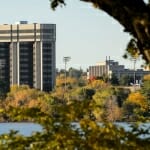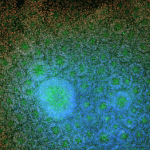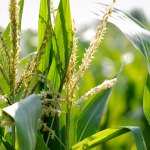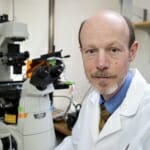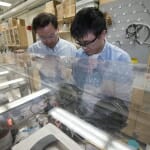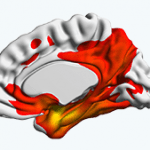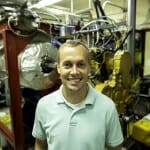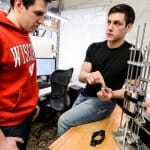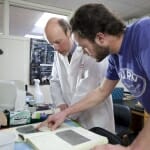Tag Research
A splash of silver turns diamond films shades of green, blue or purple
A UW–Madison researcher has succeeded in creating an array of colorful thin diamond films, which will help explore light-powered chemical reactions catalyzed by diamond.
WARF announces annual grant figures and 2018 Innovation Award winners
WARF has granted the university $73 million for the 2018-19 academic year, along with $12.5 million for the Morgridge Institute for Research, in its annual investment in UW–Madison-based research and education.
Recovering from a heart attack? Hold the antibiotics
An international team of researchers has shown in mice that a healthy gut microbiome is important for recovery after a heart attack.
Stem Cells @ 20: The Stem Cell and Regenerative Medicine center galvanizes stem cell research
In Wisconsin, key to growing and empowering the community of stem cell researchers is the UW–Madison Stem Cell and Regenerative Medicine Center.
Set in amber, fossil ants help reconstruct evolution of fungus farming
New UW–Madison research makes it clear that the constant threat of crop parasites repeatedly pushed evolution in ants in strikingly similar directions, creating structures that helped the ants reinforce their partnership with bacteria.
In dangerous fungal family’s befriending of plants, a story of loss
Researchers show that gene loss — not the evolution of new genes — helped drive the fly amanita mushroom into its symbiotic relationship with plants.
Solar cell, married to liquid battery, achieves record efficiency
The technology Professor Song Jin is advancing – unifying solar electricity generation with storage – could first be used in off-grid, standalone energy systems.
$19M grant to aid research on early signs of Alzheimer’s
The Wisconsin Registry for Alzheimer's Prevention has received a five-year grant from the National Institutes of Health for an in-depth study of molecular signs of the disease in brain and spinal fluid.
Discovery to Product creates new program to grow entrepreneurship at UW–Madison
Innovation to Market builds on the success of D2P’s Igniter program, which helped start 19 companies over the past three years.
Clinical prospects for stem cells begin to emerge
Responsible science is almost always a slow, grueling process, but 20 years after James Thomson derived the first human embryonic stem cell lines, experts in the field of stem cell and regenerative medicine feel more optimistic than ever.
Fletcher’s research sheds light on lowering drinking age
Research by University of Wisconsin–Madison Professor Jason Fletcher provides new information about the effects of legal alcohol access at age 21 on previously unexplored or underexplored risky behaviors.
Construction begins on $133 million revamp of Chemistry Building
With the start of construction on a $133 million chemistry tower and other renovations, students — as well as faculty and other researchers — will gain access to updated teaching and laboratory spaces to accommodate the next generation of chemical education and research.


